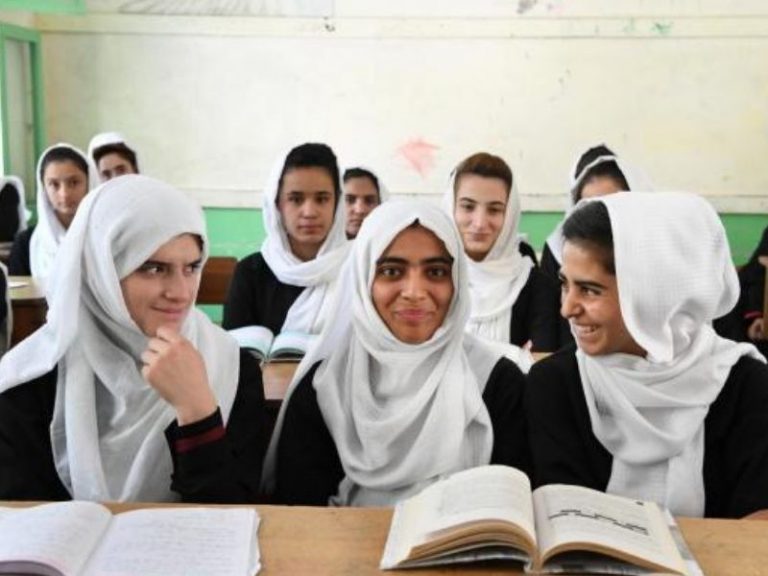 – Raghavendra Yadav, Ph.D. scholar, Centre for Studies in Economics & Planning, Central University of Gujarat
– Raghavendra Yadav, Ph.D. scholar, Centre for Studies in Economics & Planning, Central University of Gujarat
Women are known as “Aadhi Abadi” or “Aadhi Duniya” which means “Half of the World”. Going by this belief, half of all the world’s resources should be accessible to women, but unfortunately, there is not a single country in the world in which women have access to half of all resources. Even in the 21st century, the proportion of women is not equal to men in education, administration, economic, socio-political and other spheres. This inequality is prevalent in societies all over the world making colossal waste of female talent. The main reason behind this is the patriarchal values that dominate society which prevent women from working alongside men. They impose unnecessary cultural norms on women in various areas, limit girls’ access to education and career opportunities, and clamp down their rights and liberty. As a result, most women are still denied basic rights to education, employment, freedom of speech and even independent identity. Therefore, it is the need of the hour to eliminate these gender biases, raise the status of women and offer them equal opportunities in all arenas without discrimination. Dr BR Ambedakar, who is known around the world as the ‘Symbol of Knowledge’, shared his strong perspective on women empowerment and said, “I measure the progress of a community by the degree of progress which women have achieved.” If girls are denied secondary education, it means they cannot pursue higher education and a country that does not educate women cannot make progress.
An individual cannot be denied education on grounds of gender. If an individual or group is denied education on the basis of gender, caste, religion, race, color, region, etc., they are being deprived of their human rights and fundamental rights. No government has the right to restrict an individual’s human rights and fundamental rights. People of all genders should have equal access to education. All nations must have an equal education policy without any discrimination on the basis of gender, caste, religion, race, color, region, etc. The Taliban rule has temporarily banned secondary education for girls in Afghanistan based on the argument that the previous education system was not in consonance with the core tenets of Islam. They claim that they are formulating new laws for girls’ secondary education that conform to Islamic values. If, as per their argument, the earlier pattern of secondary for girls was not in tune with the core beliefs of Islam, then the question that arises is, was the earlier education system for primary education of girls in tune with Islam? Why do they not make laws for primary and higher education of girls? Another question – was the earlier education pattern in Afghanistan for boys in line with Islamic values? If they are making a new law for girls’ secondary education then why are they not making a new law for boys’ education as per their interpretation of Islam? Is the education pattern of the Taliban different from other Muslim countries? Several Islamic countries have provisions for equal access to education for all citizens including girls. If they can provide education to all without gender bias then why does the Taliban discriminate on the basis of gender? If there is provision in Islam to provide education to girls then why is it not practised in Afghanistan, and who has given the right to individuals, state or society to ban girls’ education? The Taliban government should rethink their decision on girls’ secondary education ban in Afghanistan and amend it appropriately.
There is a Chinese proverb, “If you are thinking a year ahead, sow a seed. If you are thinking ten years ahead, plant a tree. If you are thinking one hundred years ahead, educate the people. When you sow the seed, you will reap a single harvest, when you teach the people, you will reap a hundred harvests”. By temporarily banning secondary education for girls, the Taliban rule is putting at risk Afghanistan’s hundred years of planning. If restrictions on girls’ education continue in the country, they will be laying a perfect foundation for a regressive society. In low-income, low-middle-income, and conservative nations, gender inequality is more rampant. The famous economist and Nobel laureate Professor Amartya Sen said, “We cannot make a good future in the absence of women’s empowerment”. He also said, “Empowering women is key to building a future we want”. Women’s empowerment leads to raising the status of women and enables them to become financially independent which is necessary for the betterment of half of the world and for uplifting the whole world. If the Taliban government is sceptical about educating women, then the nation will remain uneducated. In this regard, Swami Vivekananda said, “There is no change for the welfare of the world unless the condition of women is improved; it is not possible for a bird to fly on only one wing.”
If any religious text or government policy prevents women from getting educated or if there is any discrimination on the basis of gender, caste, class, creed, race…. etc it is considered violation of human rights and fundamental rights of individuals. If the leaders of other Islamic nations disapprove of the ongoing ban on the girls’ secondary education in Afghanistan, they should engage in dialogue with the Taliban government. It is factually wrong to say that Islam has no provision for girls’ education; the interpretation of the Taliban is erroneous because they are not educated. Therefore, the Taliban must be educated first to change their perception on education of women and girls. Such biases were also prevalent in ancient India. For instance, as per the Manusmriti Sanhita, the shudras and women had no right to education but a wave of social reforms that took place over the years ensured they had equal access to education without any discrimination. International organisations including the United Nations, the South Asian Association for Regional Cooperation, the World Bank, the International Monetary Fund, the Asian Development Bank, world’s leaders who support girl education, social activists, civil society and other individuals should raise their voices against this draconian, unequal and discriminatory law of Afghanistan’s Taliban government. Students from universities, colleges and schools across the globe should stand in solidarity with the right to education movement of Afghanistan’s girls.
Also read: Afghanistan: Girls’ schools shut by Taliban hours after reopening






 – Raghavendra Yadav, Ph.D. scholar, Centre for Studies in Economics & Planning, Central University of Gujarat
– Raghavendra Yadav, Ph.D. scholar, Centre for Studies in Economics & Planning, Central University of Gujarat










Add comment